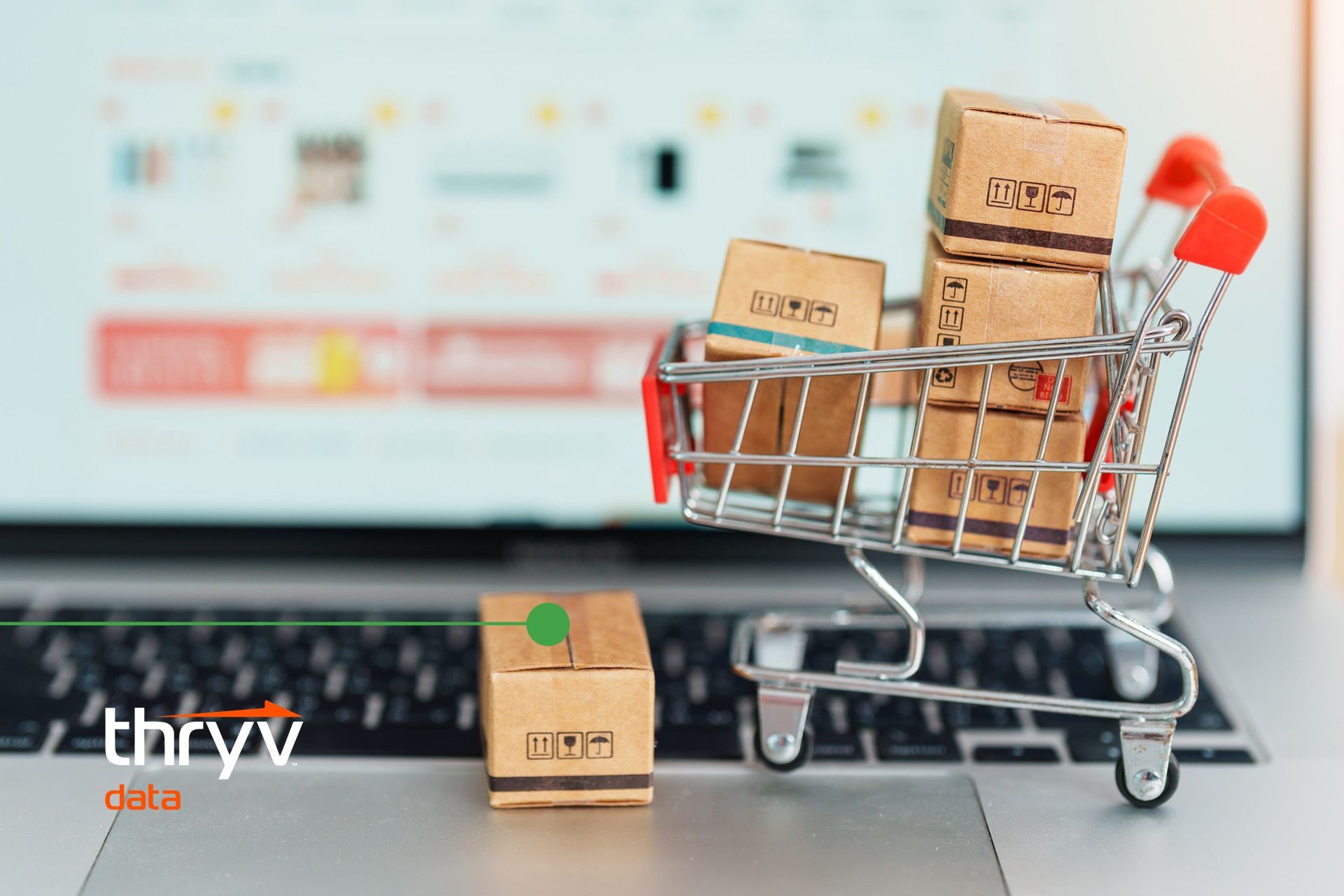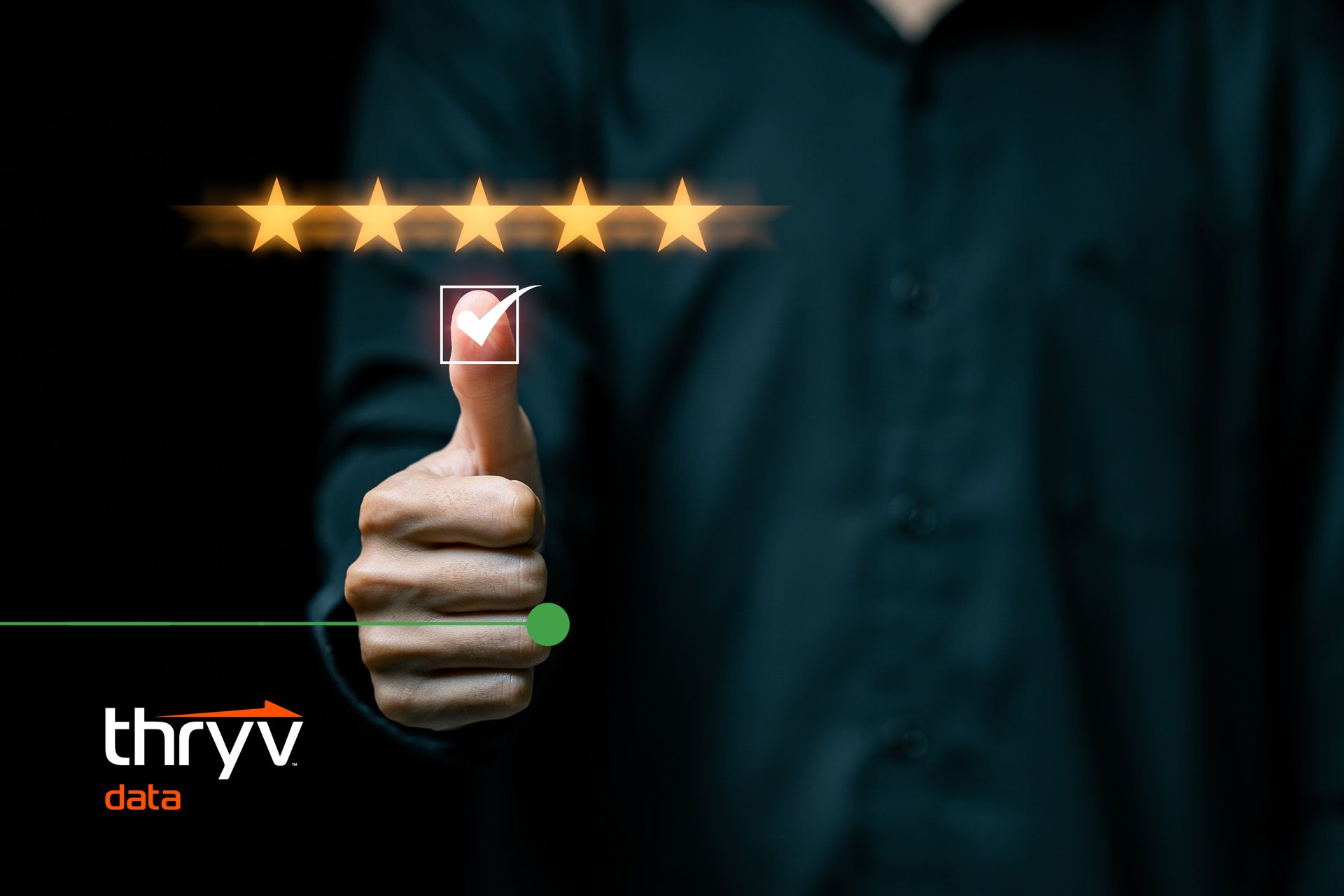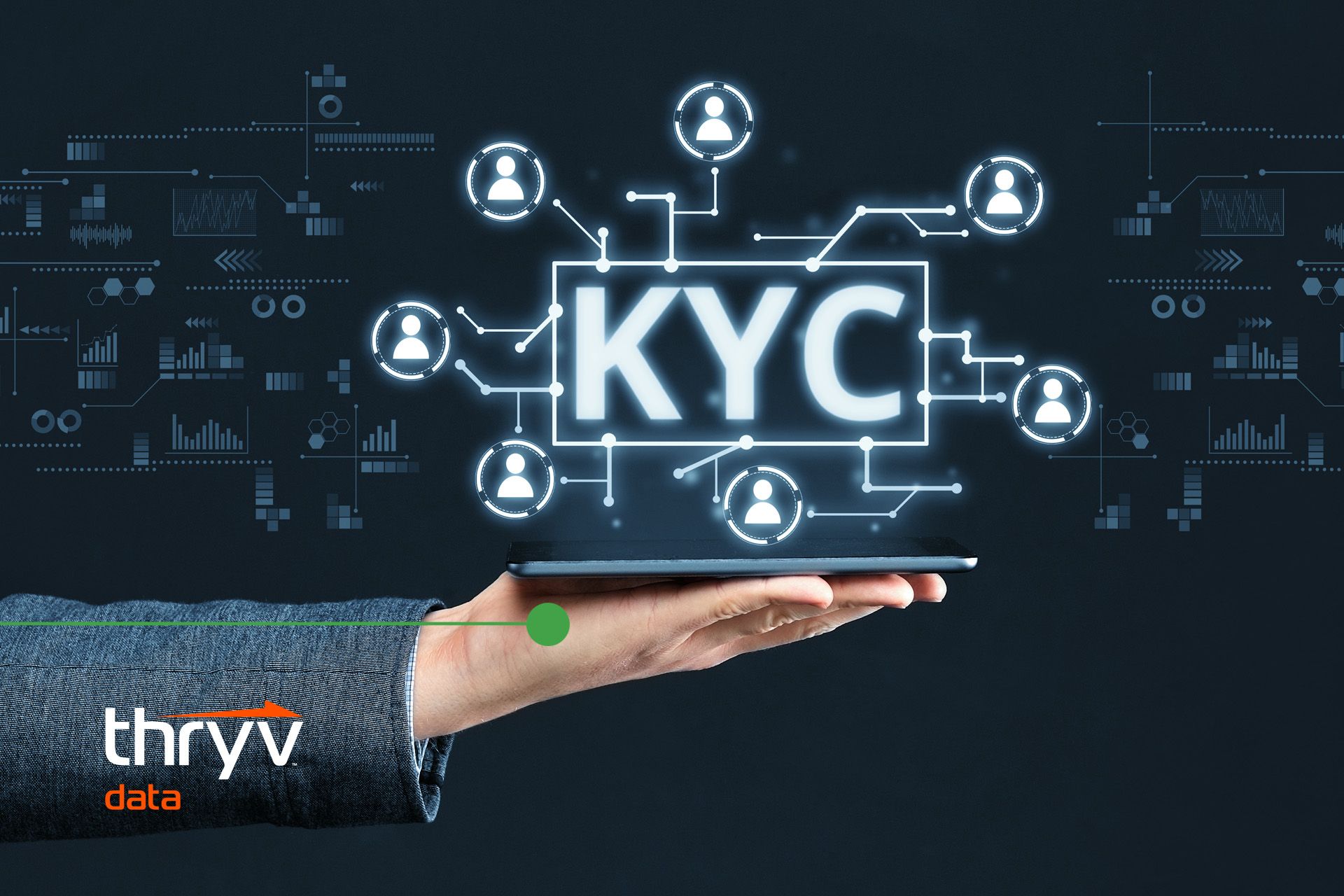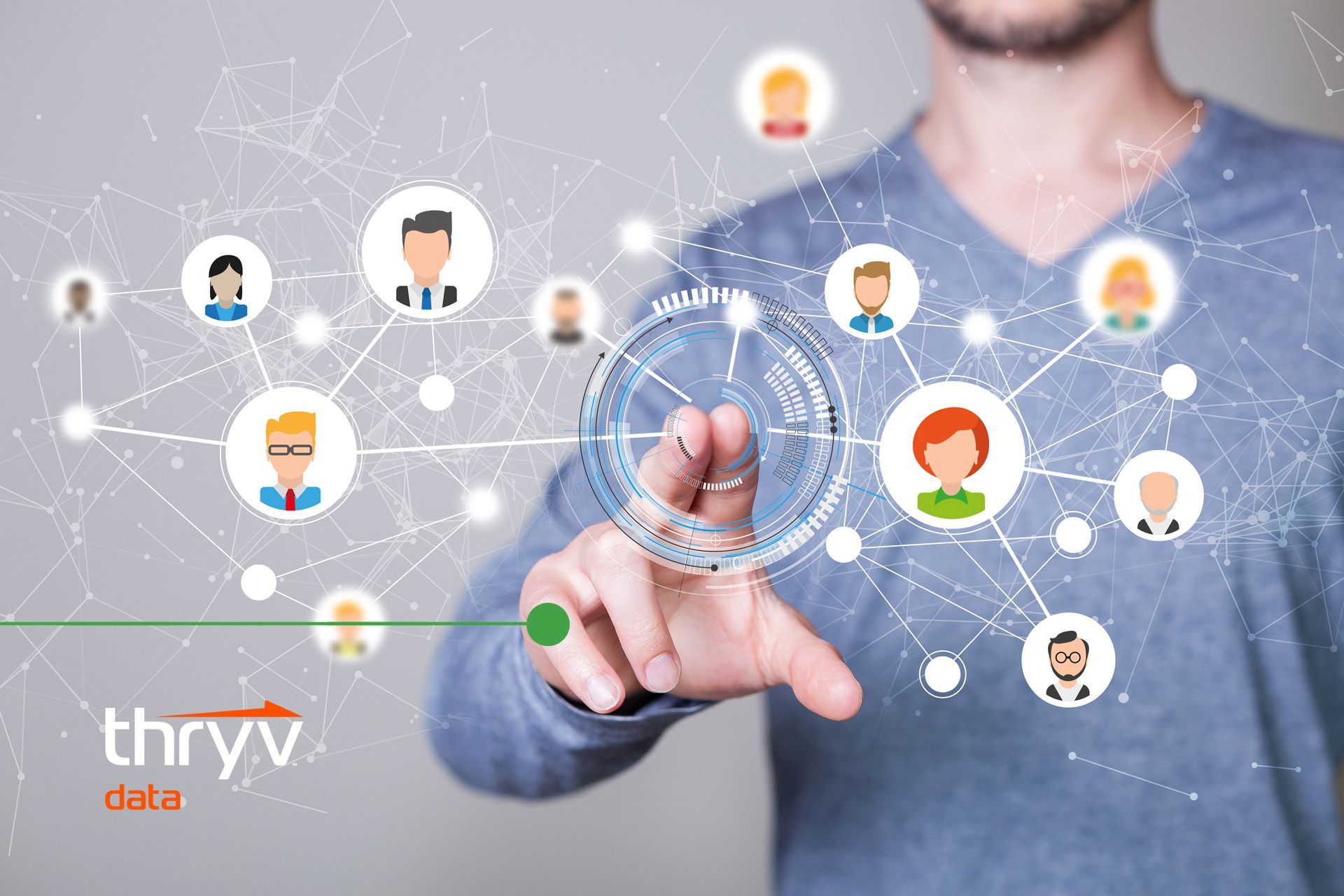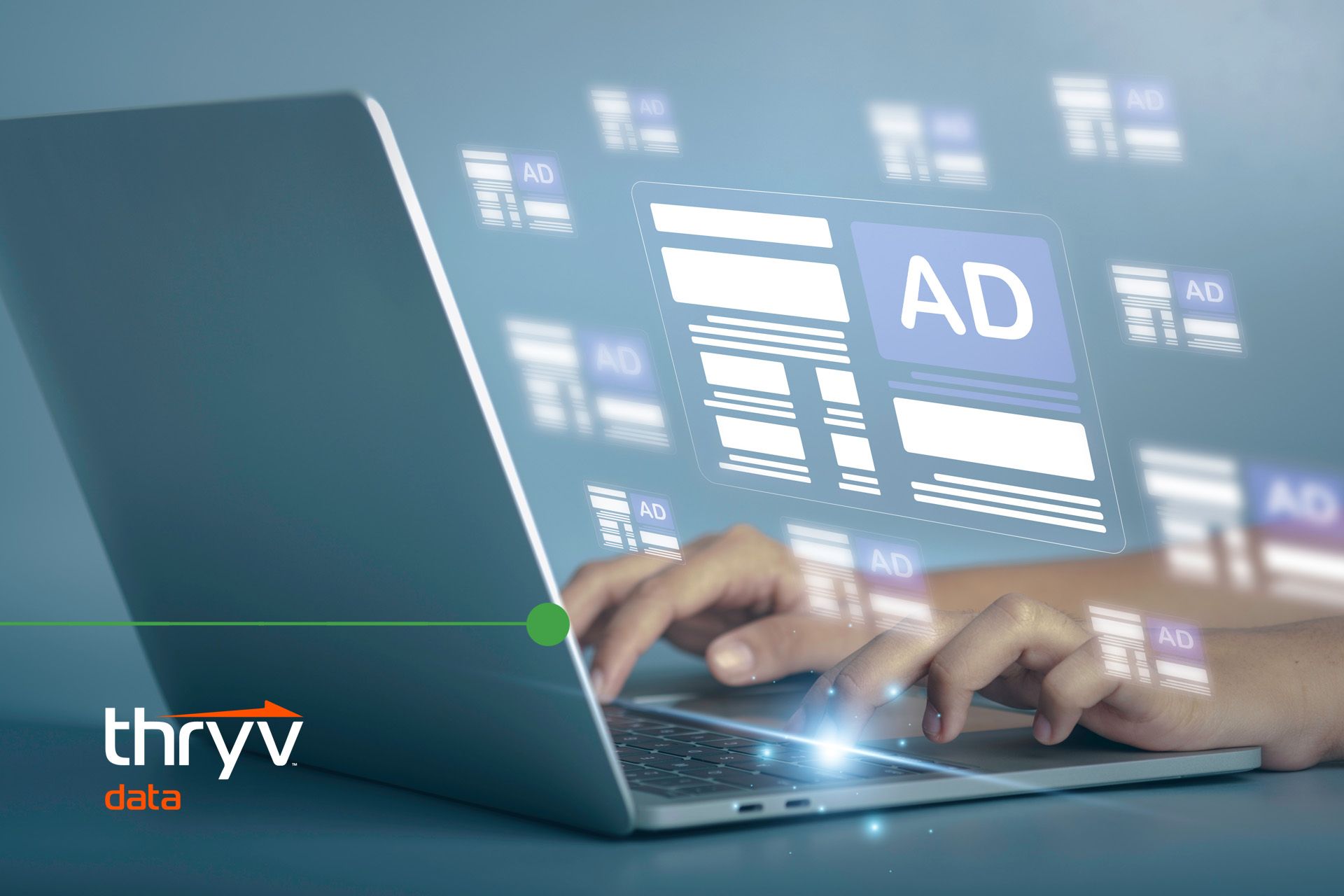Sensis Data Solutions is now known as Thryv Data. Our products, services and team still remain the same.
Contact thryvdata@thryv.com for any queries as we transition to Thryv.
Data Cleansing: A Vital Step in Identity Verification
Introduction
In today's rapidly evolving business landscape, identity verification has become a cornerstone of trust and security. As businesses interact with an increasingly digital and global customer base, the need to reliably confirm the identities of clients and customers has never been more critical. But here's the catch: identity verification is only as reliable as the data it relies upon. This is where the significance of accurate and clean data comes into play. Without a foundation of reliable information, identity verification processes can falter, leaving businesses vulnerable to fraud and data breaches. In this blog, we will delve into the vital role of data cleansing in the identity verification journey, exploring how this essential step not only ensures the integrity of your customer data but also safeguards your business against a myriad of risks. Join us as we uncover the intricacies of data cleansing and its undeniable importance in securing your business operations and fostering trust among your clientele.
The Role of Identity Verification in Business
In the fast-paced world of modern business, the need to verify the identities of customers and clients has transcended from a mere formality to an absolute necessity. This pivotal role of identity verification serves as a crucial gatekeeper, determining who gains access to services, financial transactions, or sensitive information. The reasons behind this practice are multifaceted. First and foremost, it's about trust. Establishing the true identity of individuals or entities with whom you engage in business forms the foundation of trust, both for the customers and the businesses themselves. However, beyond trust, there are dire consequences to consider. Identity fraud, a growing menace in the digital age, poses significant risks to organizations of all sizes. When inaccurate data or false identities slip through the cracks, businesses become vulnerable to financial losses, reputational damage, and legal complications. In this context, identity verification becomes not just a choice, but a strategic imperative that ensures the security and integrity of business operations. In the pages that follow, we will explore the multifaceted world of identity verification, shedding light on the many dimensions of this critical business practice.
What is Data Cleansing?
Data cleansing, also known as data scrubbing or data cleaning, is the unsung hero of effective data management. At its core, data cleansing is the systematic process of identifying and rectifying errors, inaccuracies, and inconsistencies within a dataset or database. Its primary purpose is crystal clear: to ensure that the data a business relies upon is trustworthy, accurate, and fit for purpose.
In the ever-expanding digital landscape, data flows in from diverse sources, making it susceptible to a range of discrepancies and errors. These can stem from human error during data entry, outdated or obsolete records, system glitches, or the merging of data from different platforms. Duplicate entries, missing values, inaccurately formatted information, and obsolete contact details are just a few examples of the data discrepancies that can infiltrate your database if left unchecked. Data cleansing acts as a guardian, diligently sifting through the data to remove the clutter, errors, and inaccuracies that could otherwise undermine the very foundation of informed decision-making. In this blog, we will delve deeper into the pivotal role that data cleansing plays in ensuring data accuracy, integrity, and its indispensable role in maintaining a competitive edge in today's data-driven business world.
Why Data Cleansing is Crucial for Identity Verification
In the realm of identity verification, precision is paramount. Imagine relying on inaccurate data to confirm the identity of your customers or clients. The consequences can be nothing short of disastrous. Inaccurate data can be a ticking time bomb, waiting to detonate during the identity verification process. Picture this: a typo in a customer's name, an outdated address, or an incorrect date of birth. These seemingly minor errors can cascade into identity verification failures. Such failures can result in legitimate customers being denied access to services, while also opening the door to potential security breaches and fraud.
Moreover, the ramifications of relying on flawed data extend beyond identity verification. Businesses make critical decisions based on the data at their disposal. Inaccurate data can lead to misguided decisions, financial losses, and a tarnished reputation. It erodes customer trust and undermines the very foundation of business operations. Therefore, data cleansing emerges as the unsung hero, meticulously ensuring the accuracy and integrity of the data used not only for identity verification but for all facets of business. In the following sections, we will explore in detail the far-reaching consequences of neglecting data cleansing in the identity verification process and why it should be a top priority for businesses.
How Data Cleansing Works
Data cleansing is a meticulous process that involves a series of steps aimed at identifying and rectifying errors, inconsistencies, and inaccuracies within a dataset. This process is essential for maintaining data integrity and ensuring the reliability of information used for critical business operations.
At its core, data cleansing starts with data profiling, where the dataset is examined to identify anomalies, duplicates, missing values, and formatting issues. Automated tools play a pivotal role in this phase, swiftly scanning vast datasets to flag potential errors. These tools employ algorithms and validation rules to spot irregularities, making the initial identification of errors efficient and scalable.
Once errors are identified, the data cleansing process enters the correction phase. Automated algorithms can automatically correct certain types of errors, such as misspellings or incorrect date formats. However, manual intervention is often necessary for more complex errors or those requiring contextual understanding. Skilled data professionals play a critical role here, reviewing flagged records, and making informed decisions to rectify inaccuracies.
After corrections, the dataset undergoes validation to ensure that all errors have been addressed. This validation step confirms that the data is now clean, consistent, and accurate, making it ready for use in identity verification, analytics, or any other business process.
In the upcoming sections, we will delve deeper into the benefits of automated data cleansing tools, as well as the human touch required for handling intricate data errors, highlighting why this combination is crucial for successful data cleansing.
Benefits of Data Cleansing for Identity Verification
Using clean and accurate data as the foundation of your identity verification process offers a multitude of advantages that extend far beyond data quality itself. Firstly, it significantly enhances the customer experience. When your customers' data is correct and up-to-date, verification processes become smoother and more efficient. There are fewer hiccups, fewer rejections, and a reduced need for customers to repeatedly confirm their identities, leading to improved customer satisfaction.
But the benefits don't stop there. Data cleansing is a powerful tool in the fight against fraud. By ensuring that the identities being verified are based on reliable information, businesses can more effectively spot and prevent fraudulent activities. Fraudsters often exploit inaccuracies and discrepancies in data to slip through the cracks, making clean data an essential line of defence.
Moreover, data cleansing contributes to regulatory compliance. Many industries are subject to strict data protection and privacy regulations, and using clean data helps businesses adhere to these rules. Clean data minimizes the risk of inadvertently mishandling customer information, avoiding costly fines and legal consequences.
In essence, data cleansing is the cornerstone upon which efficient, secure, and compliant identity verification processes are built. In the following sections, we will delve deeper into each of these benefits, providing insights into how clean data positively impacts various aspects of your business operations.
Challenges in Data Cleansing for Identity Verification
While data cleansing is undeniably crucial, implementing it effectively can be a complex endeavour. Many organizations encounter common challenges that can impede the seamless integration of data cleansing into their identity verification processes.
One of the primary hurdles is the sheer volume of data. Businesses today accumulate vast amounts of information, and sifting through it all to identify and correct errors can be overwhelming. This challenge is compounded when dealing with real-time data streams, where errors can emerge at a rapid pace.
Another common challenge is the evolving nature of data. Information can change rapidly, with customers moving, changing phone numbers, or updating email addresses. Keeping data accurate in the face of constant change is an ongoing battle.
Moreover, data may be stored in various formats and across different platforms, making it difficult to consolidate and cleanse effectively. Data integration challenges can hinder the identification and resolution of discrepancies.
Fortunately, for every challenge, there is a solution. Automated data cleansing tools can help manage large datasets efficiently, providing real-time error detection and correction. Regular data maintenance and updates, along with data governance policies, can address issues related to data evolution. Furthermore, data integration solutions and streamlined processes can facilitate data consolidation and cleansing.
Best Practices for Effective Data Cleansing
Effective data cleansing is not just about running a few automated checks; it's a comprehensive process that demands diligence and a strategic approach. Here are some practical tips and best practices for businesses looking to optimize their data cleansing efforts for identity verification:
- Establish Clear Data Quality Standards: Begin by defining clear data quality standards that align with your business goals and regulatory requirements. Having a well-defined framework will guide your data cleansing efforts.
- Regularly Audit Data Sources: Perform regular audits of your data sources to identify issues early. This proactive approach helps prevent the accumulation of errors over time.
- Invest in Automation: Leverage automated data cleansing tools and software to streamline error detection and correction. Automation can significantly speed up the process and reduce the margin for human error.
- Data Validation Rules: Implement data validation rules to catch errors at the point of entry. This ensures that incorrect data doesn't make its way into your systems in the first place.
- De-duplication: Identify and eliminate duplicate records to maintain a clean and streamlined database. Duplicate entries can lead to confusion and inaccuracies during identity verification.
- Data Governance: Establish data governance policies and assign responsibilities for data quality maintenance within your organization. Ensure that everyone understands the importance of accurate data.
- Regular Updates: Keep your data up to date by regularly verifying and updating customer information. Implement automated processes for data refreshing.
By following these best practices, businesses can not only achieve cleaner data for identity verification but also establish a robust foundation for data quality management across all facets of their operations.
Future Trends in Data Cleansing and Identity Verification
As technology continues to advance at an unprecedented pace, the landscape of data cleansing and identity verification is evolving along with it. Businesses that wish to stay ahead in the game must keep a watchful eye on emerging trends and innovations in these crucial domains.
One of the most prominent trends is the integration of artificial intelligence (AI) and machine learning (ML) into data cleansing processes. These technologies enable predictive analytics that can pre-emptively identify and rectify errors, making data cleansing more efficient and proactive.
Additionally, blockchain technology is gaining ground in identity verification. Blockchain's decentralized and immutable nature offers enhanced security and trust in identity management, reducing the risk of identity theft and fraud.
Biometric authentication methods, such as facial recognition and fingerprint scanning, are becoming more prevalent in identity verification. These methods provide a higher level of security and convenience, improving the customer experience.
Moreover, the adoption of application programming interfaces (APIs) for data cleansing and identity verification is simplifying integration into existing systems, making it easier for businesses to implement and maintain these processes.
To stay ahead in this rapidly evolving landscape, businesses should not only embrace these emerging technologies but also prioritize data governance and compliance with evolving data privacy regulations. By doing so, they can harness the power of innovation while maintaining the trust and security of their customer data. In the forthcoming sections, we will delve deeper into each of these trends, providing insights into how they are shaping the future of data cleansing and identity verification.
Conclusion
In the ever-evolving world of business, where trust, security, and efficiency reign supreme, data cleansing emerges as a silent yet indispensable hero. This blog has shed light on the pivotal role of data cleansing in the context of identity verification and data quality management.
To recap, we've explored the intricate process of data cleansing and its primary purpose—to ensure the integrity of data used for identity verification. We've discussed the multifaceted benefits, from improved customer experiences to enhanced fraud prevention and regulatory compliance.
Yet, challenges abound in this data-driven journey, with large volumes of data, evolving information, and integration complexities posing hurdles. Thankfully, we've provided insights into best practices and offered guidance on overcoming these obstacles.
As we peer into the future, we see emerging trends and technologies, from AI and blockchain to biometric authentication, reshaping the landscape of data cleansing and identity verification. These innovations hold the promise of even more secure, efficient, and customer-centric processes.
In conclusion, we cannot emphasize enough the critical importance of data cleansing. It's not merely a checkbox on your data management to-do list; it's the linchpin that ensures your identity verification processes are reliable, secure, and in compliance with regulations. We encourage businesses to prioritize data quality, for in doing so, you not only safeguard your operations but also earn the invaluable trust of your customers. Clean data is not just an asset; it's your competitive advantage in a data-driven world.
Book a demo or chat with us now!
Thank you for contacting Thryv Data.
One of Our Data specialists will reach out to you as soon as possible.
Oops, there was an error sending your message.
Please try again later. or email us at ThryvData@Thryv.com
